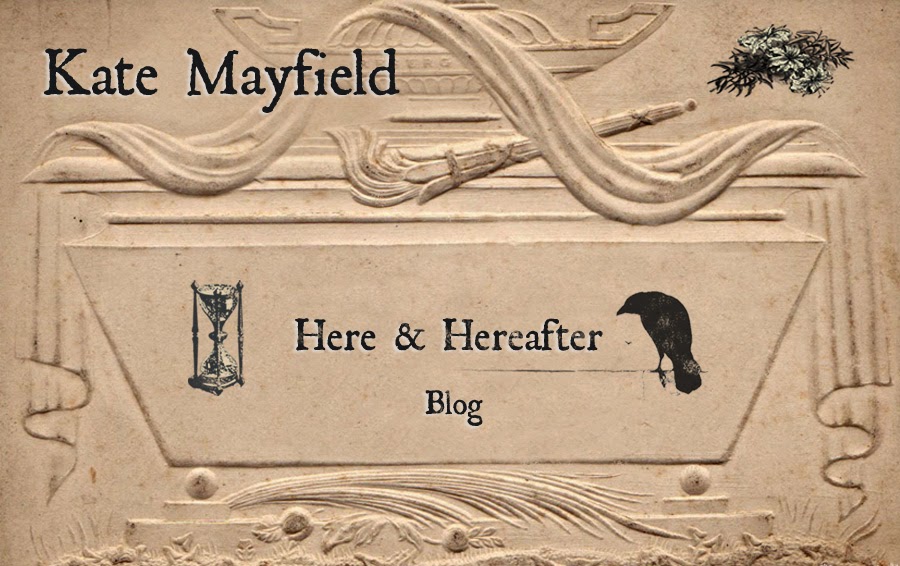SANTA VISITS THE
FUNERAL HOME
Mr. Horace Duncan died on Christmas Eve. With this news, in
my seventh year, my fourth living on top of my father’s funeral home, my heart
sank. I stood downstairs in my father’s small office, my stance firm, arms
folded at my chest.
"Why can’t Mrs. Duncan come by the day after Christmas? Why
does she have to come tomorrow? It’s Christmas Day."
My eyes accused him, as if he had caused Horace Duncan’s
demise himself.
“It just ruins everything!” I continued. “What about Santa
Clause? And the turkey? What about the smelly old oyster casserole?"
He stood looking out the front door, and nodded to a few of
our community as they rushed down Main Street in the frosty air. They waved,
never guessing they were on the tip of my father’s tongue as they strode by the
funeral home. For here came The Undertaker’s Family Lecture, not for the first
time, and certainly not the last. The clothes on my back, the food on my plate,
the yearly vacation; all these were provided by the loyalty of the people of
our town.
“And by our good friend Death,” I said under my breath.
“And if you think you’re upset, just think how poor Mrs.
Duncan feels.”
I couldn’t tell him that I didn’t want to think about how
Mrs. Duncan felt. From his point of view it was a sacrilege not to manifest
compassion. I was just a young girl, and because death was never far away, in
fact, just downstairs, I was already somewhat tired of it. And it was
Christmas, for god’s sake.
We often worked Christmas around the dead and their
families. Embalming time figured in the mix; the time-consuming little details
of preparation in all its forms were still required whether Santa came or not.
It was just another day for Mr. Death.
I should have trusted him more: My father was not one to let
a dead body ruin a holiday. He had a plan.
On that Christmas Eve night the stairs creaked and groaned
from the weight of a man dressed in red. Santa climbed the staircase of the
funeral home to our living room. After an intake of breath, I succumbed to a
moment of magic. Santa admired our tree and then sat on the sofa. As I climbed
onto his lap and set about telling him that he better get busy because he had
very little time left, that old familiar scent assaulted my nostrils.
I leaned into him, cupped my hands around his ear and
whispered, “I know it’s you, Fount.”
It was the potent cocktail of the embalming room’s odour
that first revealed his identity. A mixture of all the malodorous items in that
dark room lingered upon his skin and hair, and floated in an invisible cloud
around him. Then I took a good look at his hands. Shrivelled, wrinkled, from
his recent chore, just like my father’s. And finally, the eyes of Fount, my
father’s employee, were familiar.
Mrs. Duncan came by the next day, but she didn’t stay long.
She just wanted to drop by with a suit for Horace. She brought a fruitcake. And
something of those first four years of living in the funeral home gave me a
little kick, and I felt badly for her. Then the sadness gradually faded, and
the next thing I knew I was sitting at the big table laughing at the smelly old
oyster casserole.



